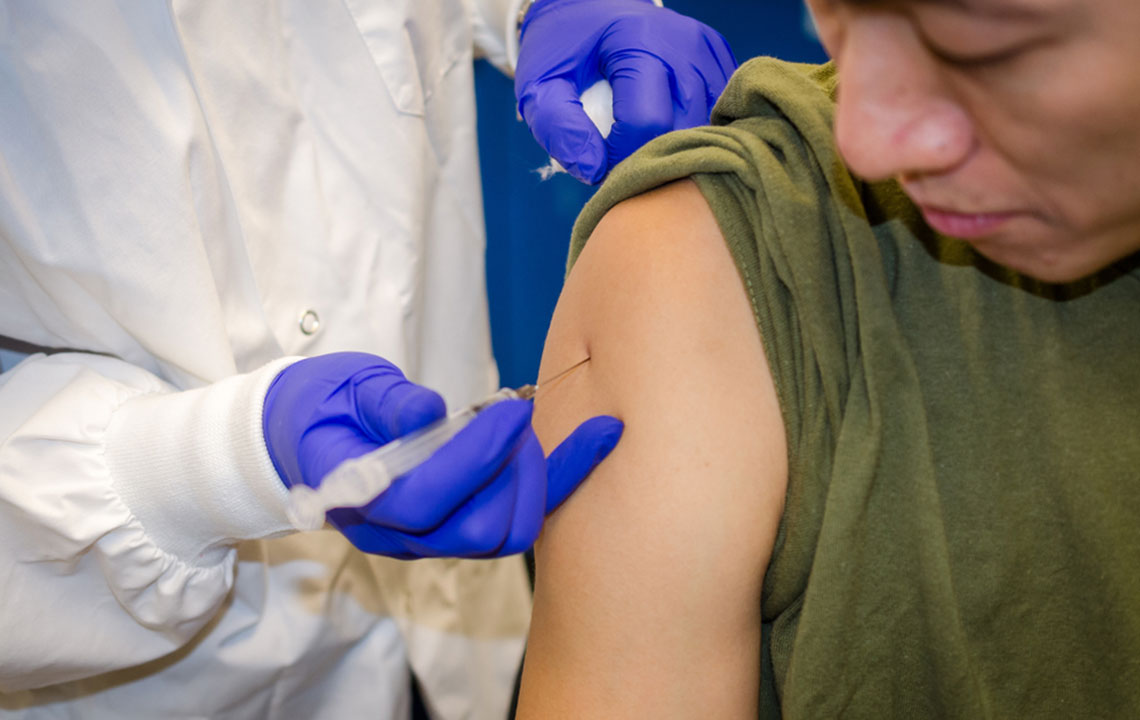Hormone Imbalance – Signs and Natural Remedies
Hormones are chemicals that relay messages in the human body. By doing so, they help with several critical bodily functions, such as controlling digestion, maintaining skin and hair health, and promoting fitness and mental well-being. So, naturally, one may develop health problems when they have hormone imbalance. Below are some of the most common signs one may develop because of hormone imbalance and a few useful natural remedies to treat the problem.

Signs of hormone imbalance
Those who experience the following hormone imbalance signs should talk to a healthcare professional for diagnosis and management:
- Skin problems
Hormonal imbalances can lead to several skin issues, the most common one being acne. Acne can occur due to an imbalance in estrogen, testosterone, and androgens. It is also a common symptom during puberty when the body experiences a lot of hormonal fluctuation. Besides acne, an imbalance in hormones responsible for metabolism can cause skin dryness. - Digestive trouble
If the hormones that affect metabolism are imbalanced, one may experience several digestive problems, like constipation, diarrhea, bloating, and abdominal discomfort. An imbalance in estrogen and progesterone may also cause irritable bowel syndrome symptoms. - Psychological symptoms
Since hormones help maintain a person’s mental health, hormone imbalance can cause mood swings and irritability. These symptoms can affect one’s ability to perform well in daily activities. Estrogen is a common hormone that can cause mental health changes in women. During menopause, a woman’s estrogen levels may drop, leading to nervousness. - Hair loss
An imbalance in the level of estrogen or testosterone can cause hair thinning or loss on the head. When testosterone is affected, one may also battle a loss of body hair. Moreover, an imbalance of testosterone in females can lead to unwanted facial hair growth. If the hormones affecting metabolism are imbalanced, one may even notice their hair becoming dry and coarse. - Sleep disturbances
An imbalance in certain hormones can lead to several sleep disorders, including insomnia. In this health condition, an individual might face difficulty falling or staying asleep. - Menstrual symptoms
Hormonal imbalance can cause several menstrual symptoms in women, such as missed periods, irregular cycles, and heavy bleeding. Hot flashes are possible if there is an imbalance of female hormones estrogen and progesterone.
Besides triggering the symptoms listed here, an imbalance of certain hormones can sometimes lead to severe diseases if not managed. These include thyroid diseases (caused by an imbalance in thyroid hormone) and diabetes (an imbalance in insulin).
A doctor may prescribe a blood test to diagnose and test for hormonal imbalances. This is because the endocrine glands send the hormones they make into the bloodstream. Once the test results arrive, the expert can tell the patient which hormones are affected and suggest steps to manage the problem.
Natural remedies for hormone imbalance
The following are a few natural and home remedies to balance hormones:
- Eat more protein
The human body requires protein to make several hormones, including testosterone, estrogen, and progesterone. Protein is also required to make hormones responsible for energy metabolism. So, it is crucial to include adequate protein in the daily meals. Eggs, meat, dairy products, nuts, seeds, and lentils are some of the best protein-rich foods one can consider including in the food regimen. - Exercise regularly
Studies have shown that regular exercise can improve the release of certain hormones and maintain a balance in hormonal activity. Exercising can also reduce insulin resistance, which is the main cause of health issues like diabetes and heart disease. - Reduce sugar intake
According to a study, reducing sugar intake can significantly improve hormonal functions. Consuming too much sugar can also increase insulin resistance. Hence, those who have diabetes or are at risk of the condition should take extra care and watch what they eat. - Manage stress
Stressing too much can increase cortisol and adrenaline. When these hormones are high, one may experience certain symptoms, such as mood swings. The imbalance of these hormones can also disrupt other hormones and increase insulin resistance and cardiovascular issues. So, it is crucial to manage stress. If someone thinks they are too stressed, they can try relaxation techniques like meditation and yoga or listen to relaxing music. - Get adequate sleep
Not sleeping enough can cause an imbalance in various hormones, including insulin and cortisol. So, individuals must get proper, uninterrupted sleep during the night to keep their hormonal levels in check. Maintaining a pleasant room temperature and avoiding electronic devices before bedtime are two tips for falling asleep sooner. - Eat hormone-boosting foods
If someone has low estrogen, they can eat fruits like apples, grapes, and berries to increase the hormone’s levels. Vegetables like broccoli, Brussels sprouts, onions, and whole grains like oats and barley are also suitable. However, one should speak to a healthcare expert before making major food changes and ask them which foods to pick.




